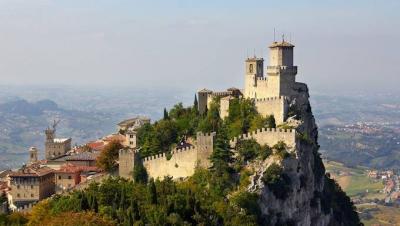San Marino turns to IMF as banks in crisis

CITY OF SAN MARINO -- The governor of this landlocked sovereign state’s central bank, Wafik Grais, has been forced to ask Washington for help for its deteriorating banks, financial sources said Monday.
In the 61 square kilometres of the Republic of San Marino live 32,000 people, and its now ‘glorious’ past as a fiscal paradise, an alleged stronghold of Italian tax evasion, means that it still remains the abode of six banks that outsize their host state -- the sum of their assets is worth four times that of national wealth.
Apparently the public accounts are in good shape, but those of the banks are not. These six banks are marked by the greatest amount of net deteriorated loans in Europe relative to their size. The International Monetary Fund calculates that at the end of 2015, these were equal to 47 percent of loans, 140 percent of GDP, and equivalent to 2 billion euros. At least half of these net deteriorated loans belong to clients who do not reside in San Marino.
Over six years, San Marino has burnt up a third of its gross domestic product, the worst collapse of the continent -- and the reason is evidently not just the consequences of the recession. It is calculated that over the past six years, over four billion euros have been taken out of the banks.
The future of this Republic lies in the hands of “this distinguished Egyptian man, with the air of a professor and a Swiss passport, who does not speak a word of Italian but to make up for it, knows everything about Islamic finances -- useful information for someone in the West searching for available capital to save banks in crisis,” ‘La Stampa’ writes. This is Wafik Grais, who has been the governor of San Marino’s central bank for the last few months.
Wafik Grais and the CEO of San Marino's central bank, Lorenzo Savorelli -- both ex-colleagues at the World Bank -- do not have an easy task on their hands. San Marino’s Cassa di Risparmio counts its fourth recapitalization in four years, and the result is a 10 percent increase in public debt. Hence being forced to turn to the Washington-based IMF for help.
San Marino is in need of many reforms, as the IMF have proposed. One of the fund’s propositions was to allow non-residents of the state to buy houses there. But their main task is clearly to give transparency and credibility to a system that for decades has been the destination of illicit funds and mafia capital.
nkd


